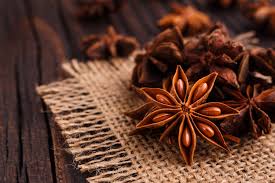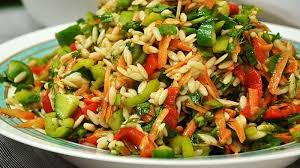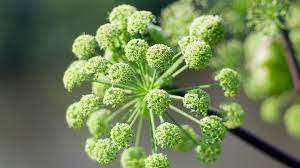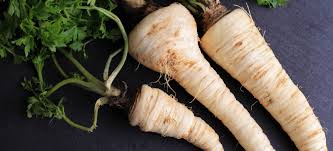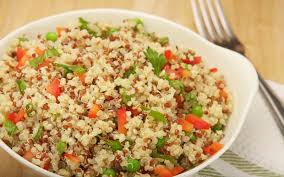Content of the Article
Dill ( Anethum graveolens ) Is an herb used in European and Asian cuisines.
Dill herb, It has a thin stem with soft leaves and brown, flat, oval seeds.
As an herb and spice, it is widely used to enhance the flavor of various dishes. It is often used with salmon, potato and yoghurt-based sauces.
In addition to culinary use, it is also rich in a variety of nutrients and has traditionally been used to treat various ailments such as digestive issues, colic and shortness of breath in infants.
In the article "What is dill?" how to store questions will be answered.
What is Dill?
Dillis part of the same family as parsley, cumin and bay leaf. It is native to the Mediterranean region and has been used as both a spice and a medicine since ancient Greek and Roman times.
"DillThe "name" means "to calm or soothe" and is most likely named after the plant's ability to calm troubled stomachs and colic babies.
Nutritional Value of Dill
One cup (9 grams) nutritional content of fresh dill is as follows:
Calories: 4
Vitamin C: 8% of the Daily Value (DV)
Manganese: 5% of the DV
Vitamin A: 4% of the DV
Folate: 3% of the DV
Iron: 3% of the DV
Calories of fresh dill It is very low, yet a good source of many essential vitamins and minerals, including vitamin C, manganese, and vitamin A.
Vitamin Ais an essential nutrient important for maintaining eye health and strengthening immunity. It also plays a role in male and female reproduction.
Similarly, C vitamin It is vital for the immune system and aids in bone formation, wound healing and metabolism.
In addition, it is a powerful antioxidant that protects cells from damage caused by unstable molecules known as free radicals.
Dill also a good manganese is the source. It is an essential mineral that supports the normal functioning of the brain, nervous system, sugar and fat metabolism.
The second reason to use the fresh dill calcium, Virgin, magnesium, potassium, riboflavin and zinc for 1-2% of the DV.
What Are the Benefits of Dill?
Dill It is derived from the Old Norse word "dilla" meaning "to soothe", it has been used since ancient times to treat colic and digestive diseases in infants.
Rich in antioxidants
AntioxidantsThese are naturally occurring compounds that help protect cells from damage caused by unstable molecules known as free radicals.
Studies show that consuming foods rich in antioxidants can help reduce chronic inflammation and prevent or even treat certain conditions such as heart disease, Alzheimer's, rheumatoid arthritis, and certain forms of cancer.
Dill plantThe seeds and leaves of the have been found to be rich in a variety of plant compounds that have antioxidant properties.
Flavonoids
These plant compounds have been associated with a reduced risk of heart disease, stroke, and certain types of cancer. They also play an important role in brain health.
terpenoids
These compounds are found in essential oils and protect against liver, heart, kidney and brain diseases.
Tannin
Responsible for the bitter flavor in many herbal foods your tanninsIt has been noted to have powerful antioxidant properties as well as antimicrobial effects.
Good for heart health
Heart disease is the leading cause of death worldwide. The World Health Organization estimates that by reducing risk factors such as malnutrition, smoking and inactivity, approximately 75% of heart disease cases can be prevented.
Additional risk factors for heart disease include high blood pressure, triglyceride and LDL (bad) cholesterol levels, as well as chronic inflammation.
DillIt is stated that the flavonoids contained in it protect heart health due to its powerful antioxidant and anti-inflammatory properties.
Also, animal studies dill extractIt has shown that it may have cholesterol and triglyceride lowering effects.
One study in 91 people with high total cholesterol and triglyceride levels found that taking 2 tablets of dill extract daily for 6 months significantly increased total cholesterol and triglyceride levels but did not alter HDL (good) cholesterol levels.
Helps lower blood sugar
Having chronically high blood sugar levels, insulin resistancecan cause metabolic syndrome and type 2 diabetes.
DillIt is stated that it has blood sugar lowering effects. Various studies in animals with diabetes, daily dill extract showed a significant improvement in fasting blood glucose levels with doses.
Has anticancer properties
Monoterpenes; It is a class of terpenes, which are naturally occurring plant compounds that have anticancer, antiviral, antifungal, and anti-inflammatory properties.
Generally dill It is found in essential oils of such plants and has anticancer properties.
More specifically, d-limonene is a type of monoterpene that studies show it can help prevent and treat lung, breast, and colon cancer.
Dill It is thought to have anticancer properties since it is high in monoterpenes, especially d-limonene.
May help reduce menstrual cramps
A study, dillstudied the effects among students with primary dysmenorrhea in their late teens or early 20s, also known as painful periods or menstrual cramps.
The interventions included 12 different herbal remedies: dill, chamomile, cinnamon, rose, fennel, fenugreek, ginger, guava, rhubarb, uzara, valerian, and poisonous and five non-herbal supplements (fish oil, melatonin, vitamins B1 and E, and zinc sulfate. ) in various formulations and doses.
Although the effects are not strong, dill Some evidence of efficacy of several supplements was clear as they reduced some of the discomfort and pain associated with cramps, including.
Helps reduce depression
Depression is a big problem both among adults and adolescents. Dillcan be a natural remedy for depression.
In the American Journal of Therapeutics a published research, dillaimed to investigate the antidepressant and analgesic properties of the aqueous extract of s.
Extract of the dill plant It was administered to subjects and showed a significant antidepressant and analgesic effect compared to drug references (sertraline and tramadol).
Lowers cholesterol
DillProvides cholesterol-lowering benefits. In rats with high cholesterol, as a result of some studies dill extract ve dill tabletsIt was found that its effect on lipid profile, liver enzymes, gene expression and enzymatic activity was positive.
Subjects were randomly divided into six groups and used daily in various forms. dill took the doses. Compared to the group that did not take dill after one month, dill tablet or a dill extract Lipid profile, blood glucose, and liver enzymes were significantly reduced in all groups treated with the drug.
Natural insect repellent
Dill, In the Journal of Food Protection demonstrated the ability to repel insects as shown in published research.
Twenty plant-derived oils were evaluated for their insecticidal activity. Responses varied with different species, plant oils and exposure time.
According to the fumigant 50 percent lethal dose values, dill oil it caused the highest pest deaths, followed by yarrow and eucalyptus oil.
Can treat epilepsy
Epilepsy is a common neurological disorder characterized by unpredictable and episodic seizures. While there are many medications prescribed to help reduce symptoms such as seizures, most of these medications cause unwanted side effects.
In the Malaysian Journal of Medical Sciences In this published research, juicy extract of dill leaveswas evaluated in terms of effects on convulsions and epilepsy treatment.
The review identified the herb as having a traditional medicinal reputation for profound anticonvulsant activities, potentially working as a natural alternative treatment for epilepsy.
What are the Harms of Dill?
Dill plant and seeds can generally be consumed safely. However, in rare cases, it has been reported to cause an allergic reaction, vomiting, diarrhea, swelling and redness of the tongue, and swelling of the throat.
In addition, during pregnancy and breastfeeding dill pills or extractsIt is recommended to avoid it because there is limited research on their safety.
How Does Dill Use?
Dillis a delicious herb that can be added to some dishes. It can be used in the following ways;
- It can be added to soups or vegetable dishes.
- It can be sprinkled on salads.
- It can be used in potato salads or baked or roasted potatoes.
- It can be used to add flavor to fish, meat or egg dishes.
- It can be added to baked breads.
- It can be added to sauces, marinade or salad dressings.
How to Store Dill?
To store fresh dill, first gently wash the leaves with water, wrap the branches loosely in a paper towel, and then put them in a zippered plastic bag.
You can keep the dill in the vegetable compartment of your refrigerator for up to 1 week. To keep it longer, you can wash the fresh dill and then put it in the freezer.
To freeze, put it in a safe bag and consume before 6 months for best flavor.
Frozen dill can be used in cooking without thawing. Dry dill ve dill seed It can be stored for 6 months to 1 year in an airtight container in a cool and dark place.
As a result;
Rich in antioxidants and a good source of vitamin C, magnesium and vitamin A dillIt has several health benefits, including protecting against heart disease and cancer.
When properly stored, fresh dill It can last up to 1 week in the refrigerator and longer in the freezer.







